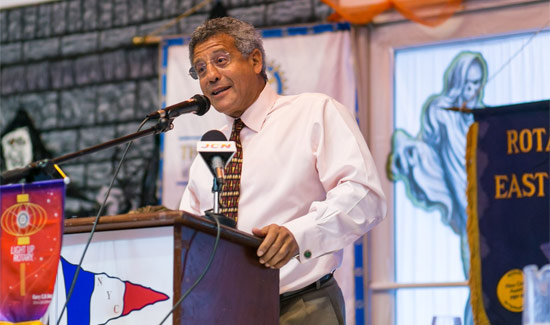
Opposition parties have a slight advantage at the beginning of election campaigns in the Westminster system. Because they are not involved in the day-to-day process of governing, these parties can start officially campaigning early. Governing parties have to balance administration and politics.
The Progressive Liberal Party (PLP) and Democratic National Alliance (DNA) have taken the lead this campaign season when it comes to television advertising. Each party has been airing TV ads for several weeks. The ads usually come on during the nightly newscasts – the most reliable time to catch a large audience of Bahamians on TV.
The DNA is pushing the message of change and that the old parties and their leaders are not taking The Bahamas to where it needs to go. The PLP is saying it has new ideas; that it did well when it was last in office; and that it has a new young team.
The governing Free National Movement (FNM) has not started airing its TV ads yet. However, considering what the opposition parties are doing, we expect the FNM to soon roll out its TV spots in an effort to counter and put forward its message.
In developed jurisdictions, TV ads are at the center of election campaigns. Tens of millions of dollars, if not hundreds of millions, will be spent in the U.S. during its current presidential campaign. In The Bahamas TV advertising previously was not as significant a feature of our elections. Things seem to be changing.
This change comes at a time when the parties have also embraced social media. The PLP, FNM and DNA have Facebook pages – as do many party candidates.
Some savvy and organized members of Parliament, such as Dr. Hubert Minnis, also have well-managed email operations with wide mailing lists. His team keeps those on the list aware of what Dr. Minnis is doing in Killarney and what he thinks of issues of importance.
There are various reasons for the changing tactics in Bahamian politics from a few decades ago. After the FNM won the 1992 general election it liberalized the broadcast sector, ending the ZNS monopoly. Consequently, numerous radio stations emerged. Television news operations also started at Cable Bahamas and Jones Communications.
The commercial expansion of the Internet in the 1990s also created a new media landscape. Now, party websites help the organizations transmit their messages to potential voters across the multi-media platform.
The old concentrated audiences of the monopoly state broadcaster, ZNS, and the dailies have fragmented due to legislative and technological advancements. Parties, therefore, now have to consider a wider range of approaches to reach the electorate.
Thus far, the opposition parties have repetitively aired a limited set of ads. To be effective using this model of advertising they must realize that more ads have to be created with varied messages.
In recent times, rallies have been the events at the center of Bahamian political campaigns. The more the parties spend of varied forms of advertising, the more the rally will diminish in our elections. Rallies will never be insignificant. But it makes a lot of sense to use more of those campaign dollars to reach people on a daily basis where they are rather than saving them up for a few events.
Parliamentary Registration Department doing a good job
The Parliamentary Registration Department has set up a voter’s card collection center at Kendal G.L. Isaacs National Gymnasium. Tables have been organized labeled with the names of the various constituencies to assist with the pick-up process. Yesterday around midday it took five minutes to collect a voter’s card at the gym.
Bahamian government agencies are often berated when they fail to deliver the services they should. On this occasion, the department is doing well. We hope the entire election process flows this well.
Source: The Nassau Guardian



